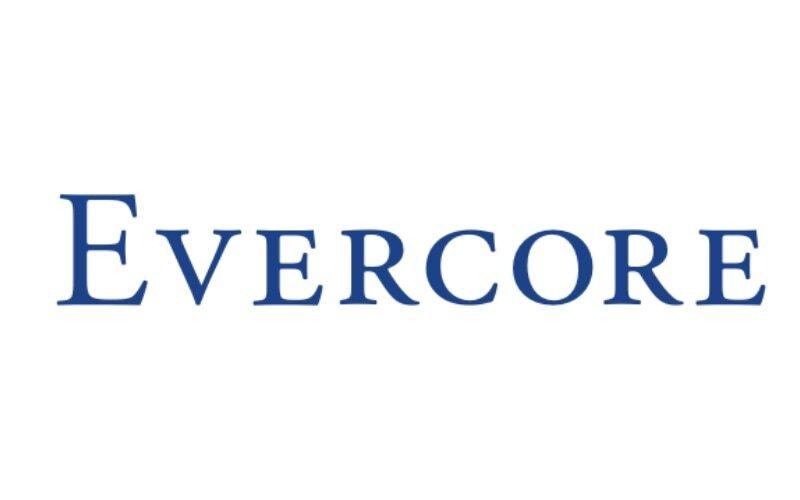News

Property insurance rates expected to fall further
Property insurers and brokers expect rates to continue falling into 2026 unless a major windstorm hits the United States before hurricane season ends Nov. 30.
Meeting at the Insurance Leadership Forum this week, past the midpoint of the season, senior executives said the sometimes double-digit rate decreases seen over the past year will continue as new capacity enters the market.
The price declines, which began last year, came after six years of hardening; however, the property line remains profitable, they said during interviews at the meeting, which is sponsored by the Council of Insurance Agents & Brokers.
AI in Insurance
Gartner Predicts Worldwide AI Spending Will Total $1.5 Trillion in 2025
Continuous Demand for AI Is Expected to Fuel Investments in IT Infrastructure
Worldwide spending on AI is forecast to total nearly $1.5 trillion in 2025, according to Gartner, Inc., a business and technology insights company.
“The forecast assumes continued investment in AI infrastructure expansion, as major hyperscalers continue to increase investments in data centers with AI-optimized hardware and GPUs to scale their services,” said John-David Lovelock, Distinguished VP Analyst at Gartner.
“The AI investment landscape is also expanding beyond traditional U.S. tech giants, including Chinese companies and new AI cloud providers. Furthermore, venture capital investment in AI providers is providing additional tailwinds for AI spending.”
Looking towards 2026, overall global AI spending is forecast to top $2 trillion, led in large part by AI being integrated into products such as smartphones and PCs, as well as infrastructure (see table below).

Insurance laws will protect us from AI decision making, experts tell panel
Insurance companies will always be held responsible for any decisions made with help from artificial intelligence even as the technology becomes more widely adopted and may someday be used to pay claims, insurance experts told a panel of state legislators on Tuesday.
The Florida House of Representative’s Subcommittee on Insurance and Banking invited several national insurance advisers to provide an overview of insurers’ use of AI in their industry, in part to address concerns that AI will be the sole driving force in claims decisions, especially by health insurers.
Bills filed during the spring legislative session would have required insurers’ decisions be made by “qualified human professionals” while prohibiting use of artificial intelligence, algorithms, or machine learning systems as the sole basis for determining whether to pay or deny claims.
Neither the House nor Senate versions of the bill advanced very far, but ahead of next year’s session, lawmakers remained concerned about how humans might someday be cut out of important insurance decisions as the technology evolves.
Insurance advisers in the hearing said that AI is helping larger insurers improve their operations in a number of ways, including speeding up claims decisions.
FurtherAI Raises $25m to Automate Insurance Workflows at Scale
The funding comes only six months after its $5 million seed round, pushing its total capital raised to $30 million.
At the heart of FurtherAI’s mission is a goal to put an end to the inefficiencies that have long burdened insurance professionals. For decades, underwriters, brokers, and claims handlers have relied on outdated systems and manual processes, spending hours sifting through spreadsheets, PDFs, and disconnected databases.
FurtherAI wants to change that by automating workflows across underwriting, claims, and compliance, giving insurers the freedom to focus on risk management and client service rather than administrative tasks.
“Insurance is the backbone of the economy, but the people running it have been stuck with outdated tools,” said Aman Gour, co-founder and CEO of FurtherAI. “With this funding, we’re doubling down on building AI workflows that give underwriters, brokers, and claims teams superpowers — freeing them to focus on the work that truly matters.”AI consulting services
The Series A round, which also saw participation from Nexus Venture Partners and Y Combinator, reiterates the current interest in specialised technology in the insurance space. The company plans to use the new funds to expand its catalogue of insurance-specific workflows, strengthen integrations with major carriers and brokers, and scale its go-to-market efforts amid accelerating demand.
Research

ADAS technology to have significant impact on auto insurance industry: Evercore ISI
Advanced Driver-Assistance Systems (ADAS) are expected to have a significant impact on the auto insurance industry, driving near-term frequency changes to the sector, although, autonomous could have greater ramifications longer-term, according to a recent Evercore ISI.
In a recent report, titled ‘US P&C Insurance: The ADAS Impact on Personal Auto Insurance’, Evercore suggests that the increased adoption of ADAS technology will drive a -1% annual decrease in auto insurance loss cost trends.
This could potentially accelerate to a -2% to -3% reduction in total loss cost trends by 2030 as technology improves and its penetration in the US vehicle fleet reaches a “tipping point” of around 50%.
ADAS refers to a suite of technologies designed to enhance vehicle safety through automated detection and avoidance features.
The report estimated that Level 2/2+ ADAS penetration reached 25% in 2024 and is projected to grow to 50% by 2030.
The most impactful features are considered to be Front Automatic Emergency Breaking (FAEB), Forward Collision Warning, Blind Spot Monitoring (BSM), and Rear AEB.
According to the report, the primary impact of ADAS is a reduction in claim frequency. A LexisNexis study from 2024, analysed in the report, found that ADAS-equipped vehicles had lower claim frequencies for Bodily Injury (-24%), Property Damage (-19%), and Collision (-11%) compared to non-ADAS vehicles.
Announcements
Charlee.ai & Nexus Venture Partners Announce Alliance to Advance AI-Driven Risk Intelligence & Claims for P&C Insurance
Charlee.ai, a leader in AI-powered predictive analytics for property & casualty (P&C) insurance, today announced a strategic alliance with Nexus Venture Partners, Inc. The partnership focuses on accelerating adoption of AI advantages in underwriting (risk intelligence) and claims management, helping carriers enhance decision-making, reduce expenses, and deliver better outcomes for policyholders.
Driving Underwriting Precision
Through this alliance, Charlee.ai’s risk intelligence platform—trained on over 60 million claims—will be promoted jointly with Nexus Venture Partners to support carriers seeking sharper underwriting capabilities. By providing early insights into severity, litigation potential, and risk intelligence, the solutions help insurers price more accurately, manage portfolios, and optimize reserves.
Transforming Claims Intelligence
Charlee.ai’s claims components deliver measurable results: reducing attorney involvement, improving reserve accuracy by 15–20%, and speeding resolution cycles by up to 45%. Together, Charlee.ai and Nexus Venture Partners will bring these advantages to a wider network of carriers, MGAs, and TPAs.
“Our alliance with Nexus Venture Partners is about scale and shared vision. Together, we will help P&C insurers leverage AI not as a buzzword, but as a practical engine for better underwriting and claims outcomes,” said Sri Ramaswamy, CEO of Charlee.ai.
“Charlee.ai has proven that AI can transform insurance workflows with accuracy and transparency. This collaboration allows us to highlight and extend those benefits across the industry, empowering carriers to embrace AI with confidence,” added Zayda Marrie, Chief Executive Officer at Nexus Venture Partners, Inc.
InsurTech/M&A/Finance💰/Collaboration
Insurance Investor Markd Announces Additional $500 Million Fundraise
Parker Beauchamp of Markd announced the reopening of its debut fund up to an additional $500 million in commitments. Through the end of the year, Markd, in consultation with existing fund investors, may consider even further increasing the overall fund size to accept additional commitments from insurance companies.
The fund will continue Markd's exclusive focus on the insurance industry's future. It will invest strategically in private companies to seek investment returns and innovation partnerships for its insurance company investors and their distribution partners. The fund may also seek to become more acquisitive, taking on larger stakes in its targets.
Markd launched its debut fund of $100M in March 2022, making 68 investments in 22 active portfolio companies.
Commentary/Opinion

Race to the Bottom Threatens Insurance Ecosystem | Insurance Thought Leadership
by Stephen Applebaum and Alan Demers
We were recently having a discussion with insurance industry peers, bemoaning a vendor announcement of significantly lower pricing for a popular service in a fiercely competitive segment of the collision repair industry. As we thought about it more broadly, we agreed that the announcement was just the latest in a long series of strategic decisions that reflect the serious threat of a problem we call a "race to the bottom."
The term "race to the bottom" describes a competitive situation where companies lower prices to gain an advantage. The origins of this process are often thought to be a result of globalization and government attempts to bolster their economies. Race to the bottom tactics most often spark a destructive cycle in which the ultimate outcome is negative for all involved.
The property/casualty insurance ecosystem is one of the largest U.S. economic segments and touches hundreds of millions of consumers and businesses. It is a victim of this race to the bottom in many serious ways – some well-recognized but even more that are less visible and rarely discussed candidly. The recent roller coaster cycles of steep rate increases, underwriting losses now turning into gains and corresponding efforts to contain operating costs also have downstream implications to scores of industry service and solution providers. CONTINUED
Claims
Viewpoint: Gen AI Offers a New Frontier in Claims Modernization
When it comes to modernization, it sometimes feels like the insurance industry is running to stand still.
In recent years, carriers have invested significantly in intelligent automation, standardizing workflows and guiding processes like claims triage. They have also spent substantial time and money compiling a library of claims communication templates for use with parties, including lawyers, repairers and policyholders.
The investments to date have vastly improved the efficiency and consistency of claims services and allowed claims specialists to spend more time on higher order work. However, the advent of generative AI means that what were certainly smart investments at the time could become obsolete, unless carriers embrace the potential of this transformative technology and integrate it into what they’ve just built.
Existing systems suffer from an inability to adapt and innovate based on changing claims patterns. For example, rigid claim triage rules, which are reviewed infrequently, can cause teams to be underutilized or overwhelmed with irrelevant cases.
Claims documentation templates, meanwhile, may save time when dealing with straightforward claims but are rigid, inflexible and unable to offer the personalization that gen AI facilitates.
Gen AI systems powered by large language models, by contrast, have no such limitations, given their ability to adapt, learn and innovate at speed, drawing on vast quantities of structured and unstructured data. When working alongside business rules engines, gen AI can spot patterns in decades of claims data almost instantly.
Brandon Nuttall is Chief Digital & AI Officer at Xceedance
Canada

Allianz Commercial moves Canadian headquarters
Global insurer Allianz Commercial has relocated its Canadian headquarters to a newly designed office in Oxford Tower at 130 Adelaide Street West, a move that it says underscores its long-term commitment to the Canadian insurance market.
The new space, spanning more than 11,000 square feet, was developed to support Allianz's hybrid work model and growing workforce of 110 employees. It features 64 workstations and energy-efficient design elements that align with the insurer's global sustainability goals.
The office employs an open-concept layout with a mix of sit-stand desks, semi-private areas, and modular pivot stations. It also includes a boardroom, four video conferencing suites, and several smaller meeting rooms to facilitate hybrid engagement with clients and brokers nationwide. Chief agent Bernard McNulty said the new office reflects Allianz’s commitment to innovation and employee well-being.
Allianz’s relocation places it among a number of major insurers rethinking their physical office footprints to match hybrid work and sustainability goals. Aviva Canada recently reconfigured its Bay Street offices to support flexible, tech-enabled collaboration, while Zurich Canada has invested in sustainable workspace design that integrates low-carbon materials and energy efficiency. Intact Financial Corporation has similarly focused on creating adaptable spaces that promote team collaboration and client engagement.
Podcast Sponsor

Audio Version - 'Connected: The Podcast' --- Sponsored by Pulse Podcasts
The ‘Connected’ Podcast by Alan Demers and Stephen Applebaum, is a condensed audio version of the day's ‘Connected' newsletter, a daily scan of all the happenings in the world of Insurance & InsurTech News.
Pulse Podcasts: Introduce a new way for your audience to hear your voice! We are a podcast creation service that helps businesses turn their written content, like blog posts and news articles, into beautiful podcasts. Our platform writes the script, records the voices, and mixes the audio to create engaging content for your audience. It's affordable and has super-fast turnaround!
LISTEN AND SUBSCRIBE BELOW

